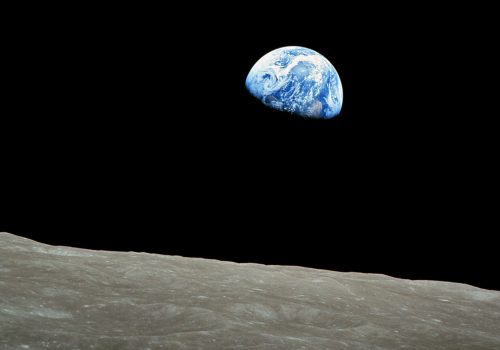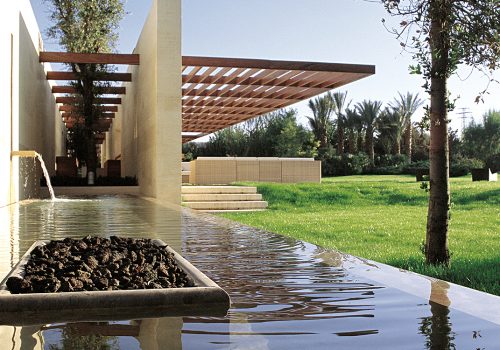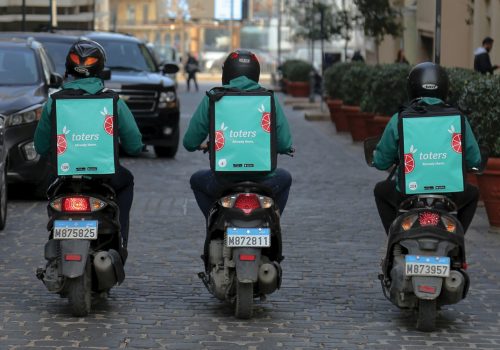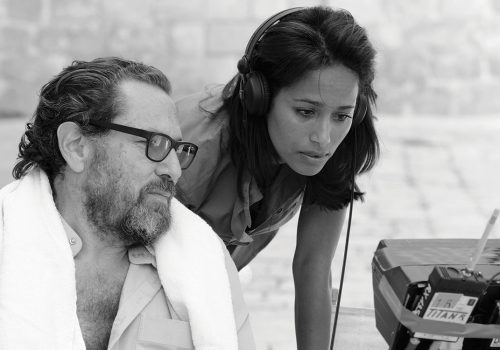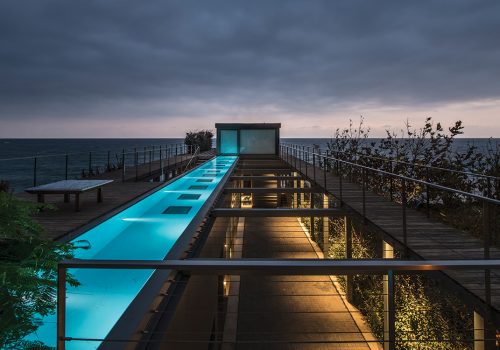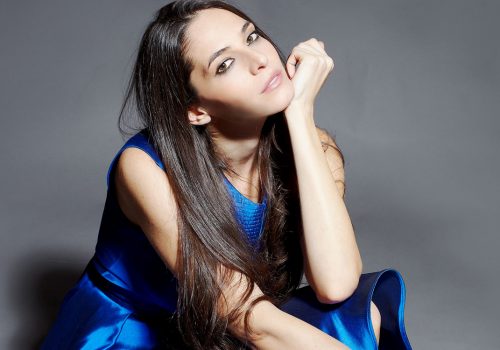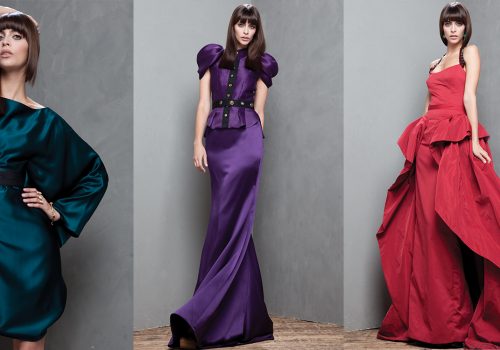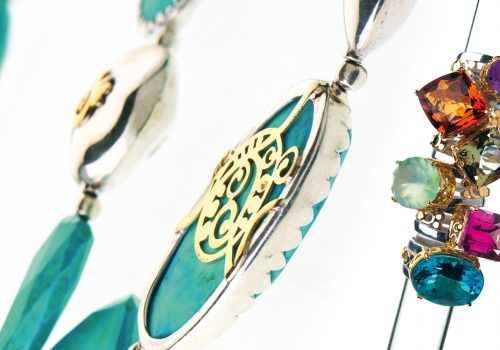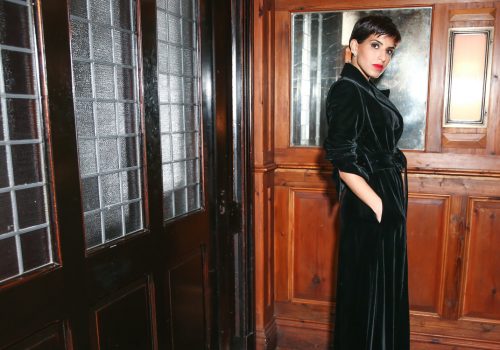Prince Bandar, one of the sons of the great King Faisal of Saudi Arabia, has undertaken a project of both huge ambition and vision in order to save the indigenous wildlife of the kingdom. Nicolas Shammas sat down with His Royal Highness to learn more.
It is a late afternoon on a hot summer’s day in Riyadh and the Bespoke team has just been ushered into the unpretentious and beautifully decorated living room of the Riyadh residence of Prince Bandar bin Faisal bin Abdelaziz Al Saud. Within moments His Royal Highness arrives without keeping us waiting even for a moment. Conversation flows effortlessly and his abundant charm is immediately noticeable. Prince Bandar bin Faisal is a big man, not just in the sense of his imposing height but in terms of the respect which he naturally commands.
The son of the great reformist and moderniser King Faisal bin Abdelaziz Al Saud, the prince spent his early years growing up in Taif, a city in the Mecca province of Saudi Arabia which his late father was the first to link to Mecca via a highway in 1965. His high schooling was at a private school in Princeton, New Jersey from which he went on to study at a college in California. Upon graduation, the prince attended the Royal Air Force College Cranwell in England for three-and-a-half-years of officer training before serving in the Saudi Arabian Air Force for most of his life.
These days, the prince’s calling is more land-based and as he puts it he is, “an animal producer.” Having bought 16,000 hectares of land equalling the size of Lichtenstein, or about half the size of the Gaza Strip, he is in the process of saving many of Saudi Arabia’s indigenous animals which had previously been close to extinction. Not just content with saving the country’s scarce wildlife, Prince Bandar also focuses on indigenous botanical life and, rather exceptionally, allows natural pollination to take its course. With the first phase already well under way, the Prince is looking to transform the site into an eco-tourism destination which he hails as “history in the making.”
The project will encompass hotels, villas, free open plains for the wildlife, a hunting ground, a flight school and even a Grade II FIA-approved racetrack named RACE (Reem Auto Club Experience) due to have a soft opening in October this year. That plan headed by his son, Prince Sultan, along with other future businesses will drive the commercial success of the nature reserve and may, one day, be the ultimate domestic tourism destination for Saudis.
WHEN DID YOU GET INTO ECOLOGY AND NATURE CONSERVATION?
[H.R.H BANDAR BIN FAISAL BIN ABDULAZIZ AL SAUD] When I was young I never liked to hunt. I have hunted but I never had the interest in killing animals that everybody seems to enjoy. I like shooting, which I used to be very good at, from rifles to pistols, even bows and arrows. But I never got into killing animals as I never enjoyed it. Ultimately, when I established myself in Riyadh the idea of preserving indigenous animals came about with Prince Saud al Faisal and Prince Sultan bin Abdelaziz.
DID YOU AGREE UPON THE PROJECT TOGETHER?
Well, I was one of the first members of the National Commission for Wildlife but that didn’t have anything to do with my concept. My concept was to have a farm with animals indigenous to Saudi Arabia along with indigenous species of plants. [Of course you must remember] at that time it was very difficult to find information concerning indigenous species.
CAN YOU TELL ME MORE ABOUT THE ACTUAL RESERVE?
It is called Il-Reem after the gazelle of Saudi Arabia. The location is just 95km from Riyadh in the direction of Jeddah which is about a 45 minute drive. I started buying plots of land there some time ago. It took a long time to establish the final plot as well as bringing in the infrastructure such as digging the wells, the planting and getting the animals. But now we have reached a stage where we have to go into a further area of development that will require building an open range for the animals. This means having enough space, enough foliage and enough cover to let the animals go free. That is what we are working on now.
DID YOU HAVE ANY HELP FROM THE COMMISSION?
No, the Commission for Wildlife wasn’t very supportive of individuals doing this. They were afraid that we, as individuals, would abuse the conservation aspect by mixing, breeding and interbreeding and so on, which of course they had a right to. All governments are that way. They think they are the only ones who are loyalist and true but eventually we got an agreement. [In fact] I am the only one breeding this species of gazelle and whenever the government wants to do something they come to this farm.
IS THE FINANCING ALL PERSONAL OR DO YOU RECEIVE GOVERNMENT SUBSIDISATION?
No subsidies or anything, it is all mine.
 SO THAT IS WHY YOU ARE LAUNCHING COMPLIMENTARY BUSINESSES TO SUPPORT THE RESERVE?
SO THAT IS WHY YOU ARE LAUNCHING COMPLIMENTARY BUSINESSES TO SUPPORT THE RESERVE?
Actually it was my dream to have all these things and I was fortunate that my sons, and I say my sons not my son, as there is also Sultan Abdul Aziz the son of my brother Prince Turki and Raed the son of Professor Abdulaziz Abuzanada, were available to execute the idea. My idea is to have one place where a family in Saudi Arabia can go and have everything imaginable. Not a Disney World but an entertainment site. Everybody has something to do. I know from the reports that conservation requires money so where do you get the money from for the conservation? The money will come from these businesses. I bought a land big enough for all these projects and RACE [Reem Auto Club Experience] is just the first step in generating money.
WHAT ELSE IS IN THE MASTER PLAN?
There are two hotels to be built, one for RACE and one for the animals. The second step will involve a flying club, a course for two wheels and an off-road course. There will also be family activities such as swimming, polo, horse shows, jumping, but not horse races as our neighbour Prince Sultan bin Mohammed is developing that. Eventually there will even be houses and schools so people can live there if they choose. The whole concept is to bring people there so that they get in touch with everything. There is the flying, the racing, family oriented activities, the animals, the hotels and the atmosphere. There is always something there for you anytime of the week.
IS THE BREEDING WELL UNDER WAY?
At the moment the animals are in big caged areas which were a necessity in order to improve the breeding. The thing is that in order to produce good genetic material or animals we had to go through a very long period of producing and eliminating the less good. There was a lot of inbreeding amongst the gazelle as most came from private quarters where they were confined in small areas. On my farm we tried to divert. We got our first gazelle about seven year ago. And I have now about 700 breeders. When we talk breeders it means the best quality, because if I had kept all of them I would have about 4,000 or 5,000. But that wasn’t the policy which was to keep only the best and a diversity.
WHAT DO YOU DO WITH THE REST?
We sell them. We also eat some of them. When special guests come we throw a barbecue but mostly we sell them. We sell mainly to other private farms.
IS THE RESERVE SOME KIND OF NATIONAL HERITAGE SITE WHICH IS NOW PROTECTED?
Yes, the farm can never be divided nor can it be sold. My future generations will own it, but they can do nothing with it [laughs]. It must always be a natural reserve.
WILL YOU BE ALLOWING VISITORS SOON?
Yes, this is part of the second phase which we are entering now. This phase will go on for the next five years. In that time, we will have the open reserve ready for the animals and we will allow people to come in. There will be a hotel and even a hunting area. In that time we will also have introduced carnivores. For this is not just for the gazelle. This is my contention with the National Commission for Wildlife. I believe [the reserve] should be a natural habitat and that we should introduce other animals that are not just Saudi Arabian.
SUCH AS WHICH ANIMALS?
These will be different. The Saudi Arabian species are important but my place should be for all animals from all over the world so as to propagate animal life. We will have animals such as elephants, rhinos [and] tigers that come from equatorial regions and semi-deserts. We are [also] starting the breeding of lions now. Lions were in Saudi Arabia all through history. Since the time of the Romans, as you can see from paintings and sculptures, the lions called the Atlas Lions were the indigenous lions of the Middle East and North Africa. Now that there are none left, we must reintroduce them by breeding the lion here again. They will not be the same species but they will have been reintroduced to the country.
DON’T YOU NEED MASSIVE INFRASTRUCTURE AND LAND DEVELOPMENT FOR THESE ANIMALS?
This can all be done. It is just about having the initiative and the determination. People say it costs a lot of money. Of course it costs a lot of money but human beings have had it easy with animals: everything for humans and just get rid of animals. But I think it’s about time now that we pay back what we have taken.
ARE THERE ANY ANIMALS YOU DON’T LIKE?
I don’t like camels, I can’t stand them, in fact I think these are the animals that should be exterminated [laughs jokingly]. There is no way I can like them, even though I love animals. I have never ridden a camel, I have eaten camel just once, drunk the milk perhaps twice but never again.
WHAT ARE THE ANIMALS YOU CURRENTLY OWN?
Apart from the lions, we have indigenous Saudi gazelles, the Arabian Oryx, I also bought 17 types of deer from Africa, giraffes and I am off to South Africa again soon to buy another seventeen types of deer. Each year we will spend a substantial amount of money to bring in new species. As part of the second phase I will be doing something very similar for the Indian species.
 IS IT EASY TO IMPORT SUCH ANIMALS OR IS THERE A LOT OF BUREAUCRACY INVOLVED?
IS IT EASY TO IMPORT SUCH ANIMALS OR IS THERE A LOT OF BUREAUCRACY INVOLVED?
As things stand now most of the animals that are around have been smuggled in. This is the primary source of animals for most people. [Importing animals yourself] is one of the hardest aspects, no matter how strict the policies are at your farm. It is very difficult to get permissions from the government and it is always a bit of a battle. There is no organisation that has control over all of this. It is unacceptable at the moment because the infrastructure is just not in place for such a project in Saudi Arabia. I have been pushing for a council which will work with the government in order to establish the rules and regulations for importing, exporting, owning, selling and breeding animals. I haven’t had any results, I have had no response from the government at all yet and I have been pushing for about seven years now. But I think it will come and that will ease the procedures a little bit.
SO YOU CONTINUE TO TAKE THE HARD ROUTE WITH ALL THE LEGAL PAPERWORK?
I always try to get the regular permissions and other such. There is no good in starting something by breaking the law so you have to go through it and we have been very successful, hamdulillah.
HOW DID YOU BECOME SO PASSIONATELY INVOLVED IN WILDLIFE?
It just develops, one day you read about things and then you start checking parts of certain things and then you start to get the urge to do something about it – especially when you see how bad it really is.
ARE THERE MANY PEOPLE THAT SHARE YOUR CAUSE?
Saudis like to kill animals. I think it’s a genetic thing and it will take a long time to change that. The old Bedouins would kill anything edible or dangerous to their sheep and domesticated animals and that is still going on. The worst catastrophe was that all Saudis got a car and a rifle and they started shooting everything that was around. Saudis have inalienable rights to carry arms – just like the Americans. And it ended everything – almost wiped it out from the face of the Earth. When we first started to reintroduce the Arabian Oryx, we had to go to the San Diego Zoo to bring an Arabian Oryx to the farm.
DO YOU FEEL MORE COMFORTABLE WHEN YOU’RE AT YOUR FARM?
I am always at the farm. I am only here in Riyadh this week because I have a lot of things to do. You know I was just in South Africa two weeks ago with H.R.H Saud Al Faisal and even when I was in Africa with all the animals I was wishing I was on my farm. I miss it, anybody would probably think I am nuts or disturbed because I could be sitting on the Champs-Élysées having a coffee with my brothers and my sons for instance and I will find myself saying “I wish we were having this coffee on the farm.” Everywhere I go, I miss it.
WHAT IS THE MOST IMPORTANT LESSON YOU EVER LEARNED?
The most important lesson in life is patience. Patience is above and beyond everything else. When you see a mistake you must be patient; if you have the dream to do something you have to be patient; if you are angry you must not respond straight away for the results will be much better [if you wait]. I think that patience is the basic cornerstone of life.
DID YOU LEARN THIS FROM YOUR FATHER?
Yes, I learned two important lessons. For my father, if you look through the history of his life, patience was the best thing for him because he had a very hard life when he was young. The second thing is knowledge. If you are knowledgeable, it will support you in all things throughout your life. I am a complete believer in reading and storing as much knowledge in my brain as I can. I read three or four books a week on different subjects from science journals and reports, religious material, historic books, even fantasy and science fiction.
DO YOU FEEL A CHANGE IN EDUCATION CONCERNING NATURE CONSERVATION IS NEEDED IN THE MIDDLE EAST?
I think it is needed everywhere, not just here. It should be done in a very intelligent, absorbing and interesting way.
THROUGH YOUR ONGOING EXPOSURE TO NATURE CONSERVATION, WHAT DO YOU THINK MUST BE DONE TO SAVE OUR PLANET?
We just established a company called United Environmentalists, I am the head of the board, my son Sultan is the deputy of the board, Professor Abdulaziz Abuzanada is the head manager and we have 17 people within the company. The company tackles everything to do with the environment, from the greenhouse effect to what you build your house with. We will get involved in all of that. Our aim is a little bit different, it is not a commercial enterprise – its primary purpose is education, training, developing and bringing technology for conservation.
WHAT HAS BEEN YOUR GREATEST ACHIEVEMENT?
Surviving [laughs]. I don’t believe in what they call achievements. I believe in productivity, what you produce. If you want to achieve there is one achievement that nobody can compete with and that is death. Death is the maximum achievement in life. What you should be proud of, however, is how much you produce during your life.
WHAT WOULD YOU LIKE TO BE REMEMBERED FOR?
I would like to be remembered for my service to the Armed Forces in which I spent 40 years. But I would like also to be remembered through my sons and my offspring, that they are good and productive Saudi citizens. That is key because no matter how much you build, it will all eventually come down. Even the Pharaohs discovered that.
Photography by Azem Choudhry



